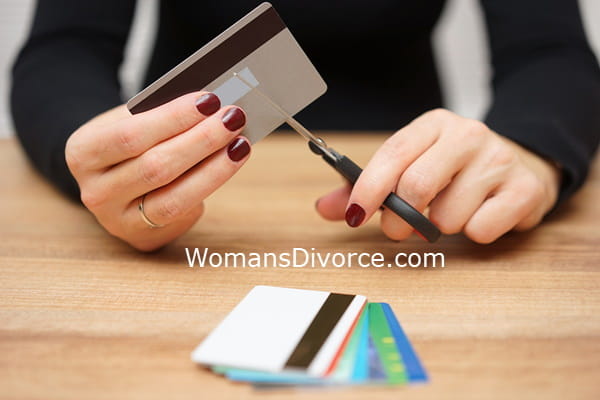Protecting Your Post Divorce Credit
by Tracy Achen
It is important to check your credit report when you are going through a divorce. The information contained in your report will affect your ability to receive loans in the future (when you decide to buy a house, car, appliances, or whatever). Insurance companies also use this information to determine rates, landlords base rental decisions on it, and some companies run a check on all future employees before making the final decision to hire.

Since many banks and major companies use this information to base their decisions on how they will work with you, you want to take steps now to make sure you will make a good impression.
How to get a copy of your credit report
To get started, you'll need to find out what is contained in your report. If you don't have a current copy, you can get a free annual copy at AnnualCreditReport.com, which is a service directly set up by the bureaus in accordance with the FACT Act.
When you visit the site, you can start the process by clicking on the link to request your report. You'll be required put in identifying information and answer some questions designed to insure that it really is you requesting the credit reports. If they can’t authenticate your identity online, you can still get your credit report by requesting it through the mail.
Even though you can get copies from all three reporting bureaus at the same time, it's best to request a different one every four months. For example, get your report from TransUnion in January, Experian in May, and Equifax in September. Rotating your reports this way will let you monitor your credit file throughout the year.
What your report says about you (and your ex)!
If there are bad marks on your report due to the negligence of your ex, you need to contact the creditor reporting the information to see what can be done. Unfortunately, they will likely still hold you responsible for the debt if it was a joint account. And if you live in a community property state and the debt was acquired during your marriage, you'll likely be liable for it even if it wasn't a joint debt. If that is the case, see if they will let you pay for half of the principle with no interest or penalties (be sure to tell them you were never notified of this debt). Also ask them to remove the bad rating from your file after your half is paid.
Another thing that you want to pay attention to is the addresses that are listed for you. For some reason, your ex’s address may appear as your current address, and this may be why you haven’t received notification of any problems. If your ex's address is listed for your current address on file, you'll need to update it with the credit bureau. Information on how to do this will be included in your report.
And if there is an address that you don't recognize at all (for example, from another state), this may be a sign of identity theft. If this is the case, you should verify that all the debts listed on your report actually belong to either you or your ex. If they don't, you'll need to report that your identity has been stolen and place a fraud alert on your file. You should be able to find out how to report the identity theft by visiting the fraud alert center for each of the credit bureaus.
Getting a Handle on Your Debts

You may find it difficult to get approved for a credit card or loan after your divorce. A major reason for being turned down is having a high debt-to-credit ratio. Basically this means that you're almost maxed out on all your loans and cards.
If you'll be receiving a cash settlement in your divorce, consider paying down some of your high interest credit cards. If you won't be receiving any money, at least send more than the minimum payment on each of your cards to whittle away the balance. This can really make a difference on your overall score.
If you really can't keep up with the minimum payments, you need to start determining what your options are. You can avoid bankruptcy by considering debt consolidation or restructuring. By working with a counseling agency, you can secure the best possible interest rates and the lowest monthly payments to help you get out of debt.
Once you start getting your head above water, be careful to not add any new debts. Cut up all but one of your cards. Put this card away and use it only for emergencies (not to buy something to lift your spirits). You can also eliminate impulse spending if you use cash or checks when you buy something. It makes it more real than swiping your card because you can see your cash supply dwindling right before your eyes.
With time and restraint you can improve your credit and regain your financial security.
For information on handling debts after divorce and getting your financial house in order, these articles can help:

